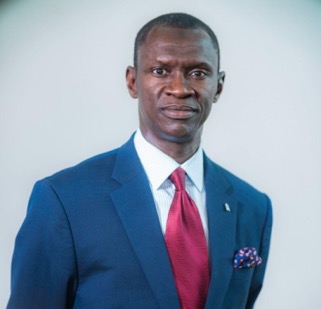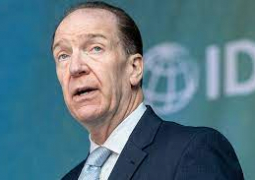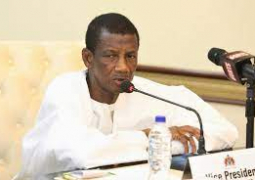
The Gambia, my beloved homeland, is a land of staggering beauty. From the golden sands of our Atlantic coast to the serene currents of the river Gambia winding through lush greenery, the country is a breathtaking portrait of nature’s generosity. Our culture, a vibrant mosaic of languages, traditions, and music, adds to the richness of the national fabric. The spirit of “Teranga” hospitality, remains alive in the warm smiles and open hearts of many Gambians. Indeed, The Gambia is a beautiful garden of roses. But like any garden left unattended, it has its thorns, and ours are increasingly sharp and visible.
As John F. Kennedy once said, “Ask not what your country can do for you, ask what you can do for your country.” These words ring true for us today, reminding us that love for country demands action, not just sentiment.
The thorns in The Gambia are not natural disasters, nor are they the limitations of geography. Rather, they are the social challenges, the ingrained negative attitudes among many of us, that mar the beauty of our garden. Jealousy, pettiness, threatening lawsuits, resistance to positive change, resistance to positive challenge, mediocrity, and indifference to the collective good have wrapped themselves around the stems of our national life, draining vitality from what could otherwise be a blooming paradise.
There is an undeniable beauty in the Gambian spirit. We are a resilient people. We have weathered colonialism, dictatorship, and economic hardships with a tenacity that speaks volumes. Our artists, scholars, athletes, and entrepreneurs show that brilliance can spring from our soil. Our elders, repositories of deep wisdom, teach values of respect, community, and perseverance. In our music, from the rhythms of the kora and xalam to the beats of mbalax and afro manding, is a soulfulness that can lift the heaviest heart. In our bustling markets, our ceremonies, and our mosques and churches, the hum of life is rich and layered.
Yet, despite this beauty, an uncomfortable reality gnaws at our national conscience. Far too often, the default attitude is to tear down rather than build up. Envy quickly replaces admiration. Gossip drowns out constructive dialogue. We are quick to celebrate failure, especially when it comes to our peers, and slow to uplift those striving for excellence. Success is sometimes viewed with suspicion rather than inspiration. Innovation is met with scepticism rather than support.
Another thorn that pierces deeply into the heart of our society is the attitude of looking down upon people from the provinces. A subtle yet damaging superiority complex festers in some quarters, where being associated with the capital or urban areas is seen as a badge of status, while those from the provinces are unfairly stereotyped, marginalised, or dismissed. This discrimination erodes our national unity and feeds a poisonous sense of division. It perpetuates a myth that brilliance, leadership, and sophistication can only be found in urban centres, when in truth, some of the country’s most courageous, intelligent, and visionary sons and daughters hail from the very villages that are looked down upon. When a country begins to judge its citizens by where they come from rather than by the content of their character, it risks losing the very diversity and richness that make it strong.
Nelson Mandela’s words are fitting here: “No one is born hating another person because of the colour of his skin, or his background, or his religion. People must learn to hate, and if they can learn to hate, they can be taught to love.” So must we, as Gambians, learn to see each other with fresh eyes, with dignity, respect, and solidarity.
This culture of negativity is a thorn that stunts our collective growth. It is visible in how public office is too often treated as a personal inheritance rather than a public trust. It is visible in the acceptance, and sometimes celebration of mediocrity over merit. It is visible in our streets and neighbourhoods, where a lack of basic civic responsibility means that filth piles up, public spaces decay, and a once vibrant environment is neglected. It is visible in our young people, some of whom, deprived of genuine opportunities and positive role models, are lured by shortcuts and empty dreams of instant wealth.
Our thorns are not just abstract notions. They have real consequences. Investors hesitate. Tourists leave disappointed. Talented youth emigrate, leaving behind a vacuum. Institutions that should serve the public good become arenas of self-interest. Even our friendships and family ties, once sacred, are too often eroded by backbiting and betrayal. The tragedy is that while the roses of The Gambia continue to bloom, brave individuals striving for excellence, the thorns around them grow unchecked, threatening to choke the very life out of them.
But gardens can be saved. Thorns can be pruned. If there is one thing I know about The Gambia, it is that hope has not died. Across the country, in villages and towns, there are Gambians who defy the culture of negativity. They are the teachers who inspire without adequate pay, the entrepreneurs who build businesses against all odds, the artists who dare to dream bigger, the civil servants who serve with integrity despite the rot around them. These individuals prove that the Gambian spirit, when properly cultivated, can still produce magnificent blooms.
As Barack Obama once noted, “Change will not come if we wait for some other person or some other time. We are the ones we have been waiting for. We are the change that we seek.” It is a call to each one of us to take ownership of the future of our nation.
To nurture our garden, we must begin with ourselves. It is easy to blame leaders, the system, or foreign influences. But national transformation starts with a change of mindset. We must revive the values of honesty, hard work, and selflessness. We must learn to celebrate each other’s successes genuinely. We must accept that constructive criticism is a gift, not a threat. We must teach our young people that dignity lies not in quick riches but in honest labour and learning. We must demand more from ourselves before we demand more from others.
Leaders at all levels, political, religious, educational, have a special responsibility to set the tone. By demonstrating integrity, transparency, tolerance and a commitment to the common good, they can inspire a change in national culture. Communities must also play their part, nurturing spaces where mutual support and collective responsibility are the norm, not the exception.
As Kwame Nkrumah once urged, “Countrymen, the task ahead is great indeed, and heavy is the responsibility, and yet it is a noble and glorious challenge, a challenge which calls for the courage to dream, the courage to believe, the courage to dare, the courage to do.”
The Gambia’s roses are still vibrant. They have not withered. But they need care, attention, and protection from the thorns that threaten to overwhelm them. If we choose to nurture our garden with wisdom, patience, and love, there is no limit to the beauty The Gambia can display to the world.
I write these words not out of bitterness, but out of love, a fierce, uncompromising love for a country that deserves better from all of us. The Gambia is my home, my pride, and my hope. It is a beautiful garden of roses, and it will remain so, so long as we, the gardeners, do not abandon our duty to tend it with vigilance and care.
Omar F. M’Bai
- John F. Kennedy – “Ask not what your country can do for you, ask what you can do for your country.” Speech delivered at the Inaugural Address on 20th January 1961 when he was sworn in as the 35th President of the United States
- Nelson Mandela – “No one is born hating another person because of the colour of his skin, or his background, or his religion”. In his autobiography “Long Walk to Freedom published in 1994
- Barack Obama – “Change will not come if we wait for some other person or some other time. We are the ones we have been waiting for. We are the change that we seek. Super Tuesday Campaign Speech delivered in Chicago on 5th February 2008.
- Kwame Nkrumah – “The task ahead is great indeed, and heavy is the responsibility, yet it is a noble and glorious challenge, a challenge which calls for the courage to dream, the courage to believe, the courage to dare, the courage to do” Independence Day Speech on 6th March 1957 when Ghana gained independence from British colonial rule.



